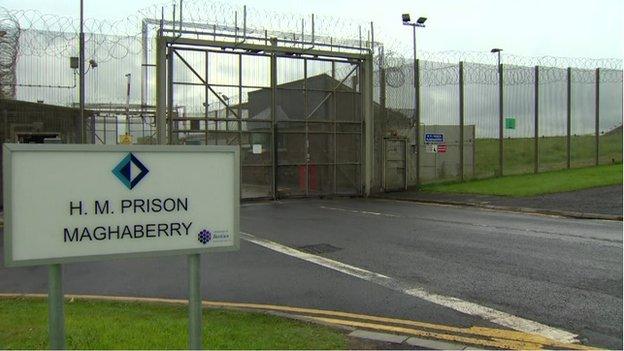NI prisons: Stormont talks to tackle mental illness in jail
- Published
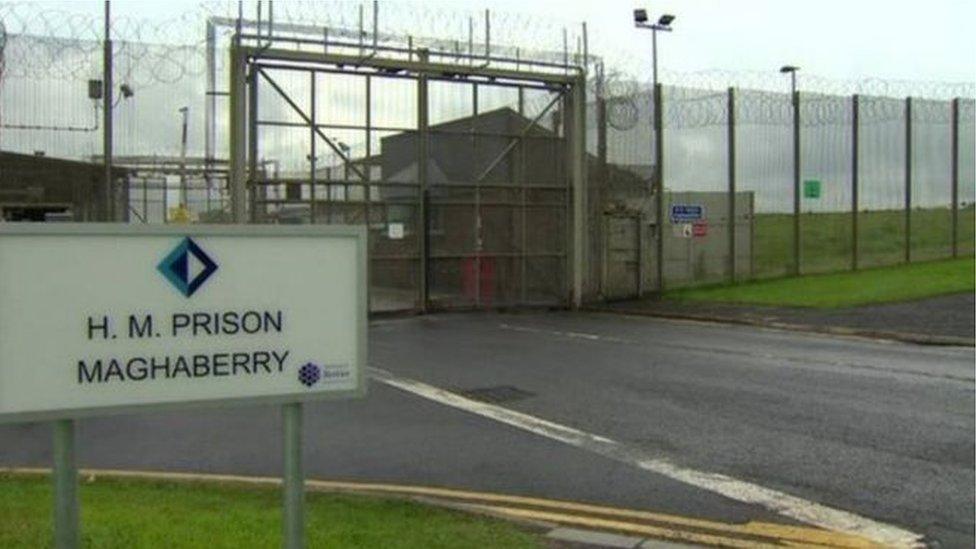
Six inmates died in Maghaberry high security jail in 2016 - four as a result of suicide
Talks will take place early this year between the departments of justice and health about how to tackle the problem of mental illness in prisons.
Justice Minister Claire Sugden said about one third of Northern Ireland's inmates have a mental illness.
The governor of Maghaberry high security jail has said prisons are not suitable for dealing with many of those sent there.
Six inmates died in the prison last year - four as a result of suicide.
A number of meetings to discuss the issue have already taken place, and more are due to be held in the near future.
There have been calls for Northern Ireland to have a dedicated high-security medical facility to deal with offenders with serious mental health problems.
Those calls are not new, but the Department of Justice has said repeatedly that the money needed to build such a facility has not been available.
That is only likely to change if Health Minister Michelle O'Neill agrees to provide much of the funding, or the executive decides that the project is a priority and ring-fences the money needed.
Last November, Claire Sugden announced a review of services for vulnerable prisoners.
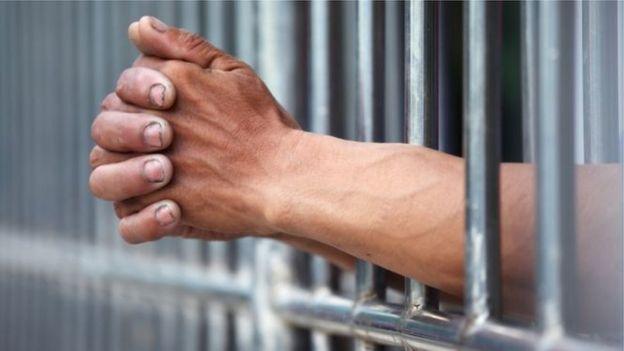
She told the Stormont Assembly that at the time there were 1,533 prisoners in Northern Ireland's three jails, with 417 having a mental health illness and 740 an addiction.
"However we portray it, the custody environment is not designed to deal with those experiencing severe chronic mental health issues," she said.
"The Northern Ireland Prison Service cannot meet this challenge alone, we need the ongoing help and support of the Department of Health, other departments, and partners across the justice system, and in the wider community."
The extent of the mental health problem within prisons was starkly illustrated in a Prisoner Ombudsman report last September, which revealed that a prisoner in Maghaberry had blinded himself while staff watched but failed to intervene.
Two prison officers were said to have watched as Sean Lynch injured himself on more than 20 occasions in an "ordeal" that lasted for over an hour in 2014.
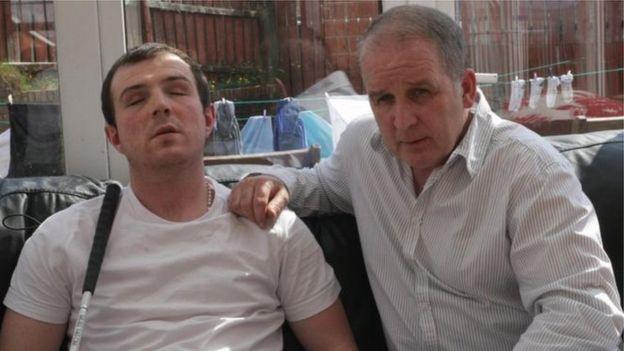
Sean Lynch blinded himself in Maghaberry jail as prison staff watched but failed to intervene
He had a history of drug and alcohol abuse and mental illness.
The since-retired director general of the Prison Service, Sue McAllister, apologised, and said prison staff were not sufficiently trained to deal with people with mental health illnesses as severe as Mr Lynch's.
Maghaberry, an all-male prison, was also in the news for other reasons last year: Six inmates died while in custody, three of them in November.
Four of the deaths were as a result of suicide, one was due to natural causes. The cause of death of the sixth prisoner to die has not yet been determined.
Professor Phil Scraton from Queen's University, an expert on the prison system in Northern Ireland, has called for a full independent review of mental health care provision.
'Significant improvements'
On a more upbeat note for the prison service, two largely positive inspection reports on the young offenders' and women's prisons at Hydebank in south Belfast were published in October last year.
Inspectors said there had been "significant improvements" and a change in ethos following a critical report three years ago.
But they raised concerns about the availability of drugs, and said some inmates should have been in a secure mental health facility or hospital rather than a prison.
The prison service is due to appoint a new director general in the near future.
They will not have their troubles to seek.
- Published23 November 2016
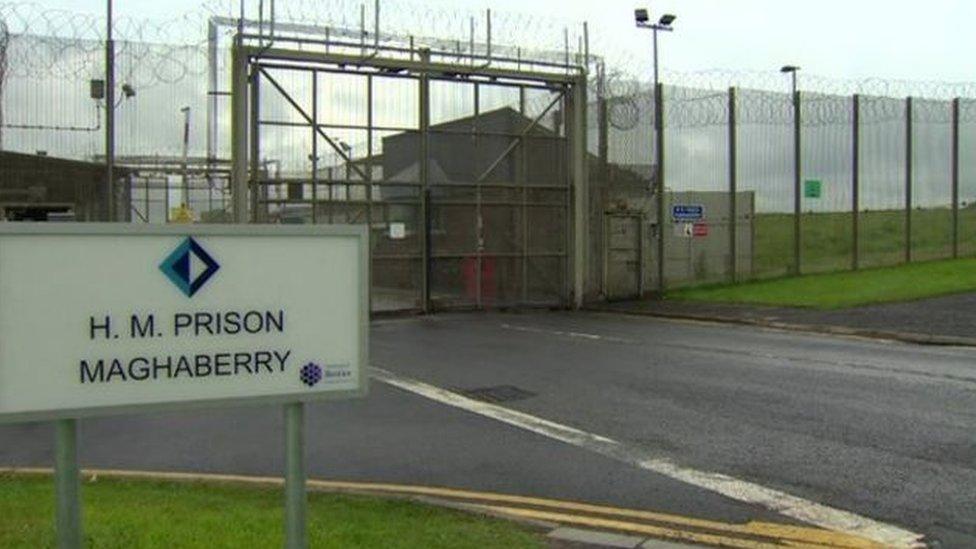
- Published18 April 2018
